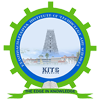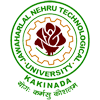Vision & Mission
To become a leading Centre of Excellence in higher learning and research, and to facilitate the transformation of students into globally competent engineering professionals and to bring out quality research in the frontier areas of Electronics & Communication Engineering..
- Focus on assimilation, generation and dissemination of knowledge in the field of electronics and communication engineering.
- Provide an academic environment that fosters leadership, research aptitude and promotes life–long learning.
- Practice and inculcate high standards of professional ethics, transparency and accountability.
- Innovate and develop real time projects in the campus.
- Increase the visibility of academic programs globally and attract talent at all levels.
PSO, PO, PEO
PSO1: Software Usage: Apply the simulation tools like VHDL, Verilog, MATLAB, MULTISIM and Mentor Graphics to design and analyze both Analog & Digital Circuits.
PSO2: Problem Solving Skills: Apply the principles of analog, digital, Instrumentation and signal processing concepts for Bio-Medical, Consumer Electronics, Advanced communication systems.
PSO3: Professional Knowledge: Apply the principles of Electronics & Communication Engineering to provide cost effective and appropriate models.
- Engineering knowledge: Apply the knowledge of mathematics, science, engineering fundamentals, and an engineering specialization to the solution of complex engineering problems.
- Problem analysis: Identify, formulate, research literature, and analyze complex engineering problems reaching substantiated conclusions using first principles of mathematics, natural sciences, and engineering sciences.
- Design/development of solutions: Design solutions for complex engineering problems and design system components or processes that meet the specified needs with appropriate consideration for the public health and safety, and the cultural, societal, and environmental considerations.
- Conduct investigations of complex problems: Use research-based knowledge and research methods including design of experiments, analysis and interpretation of data, and synthesis of the information to provide valid conclusions.
- Modern tool usage: Create, select, and apply appropriate techniques, resources, and modern engineering and IT tools including prediction and modeling to complex engineering activities with an understanding of the limitations.
- The engineer and society: Apply reasoning informed by the contextual knowledge to assess societal, health, safety, legal and cultural issues and the consequent responsibilities relevant to the professional engineering practice.
- Environment and sustainability: Understand the impact of the professional engineering solutions in societal and environmental contexts, and demonstrate the knowledge of, and need for sustainable development.
- Ethics: Apply ethical principles and commit to professional ethics and responsibilities and norms of the engineering practice.
- Individual and team work: Function effectively as an individual, and as a member or leader in diverse teams, and in multidisciplinary settings.
- Communication: Communicate effectively on complex engineering activities with the engineering community and with society at large, such as, being able to comprehend and write effective reports and design documentation, make effective presentations, and give and receive clear instructions.
- Project management and finance: Demonstrate knowledge and understanding of the engineering and management principles and apply these to one’s own work, as a member and leader in a team, to manage projects and in multidisciplinary environments.
- Life-long learning: Recognize the need for, and have the preparation and ability to engage in independent and life-long learning in the broadest context of technological change.
PEO1: Be receptive to new technologies and attain professional competence through lifelong learning such as advanced degrees, professional registration, publications, communication skills and team work etc.,
PEO2: Analyze real life problems, design appropriate system to provide solutions that are technically sound, economically feasible and socially acceptable.
PEO3: Communicate effectively and manage resources skillfully as members and leaders of the profession.
PEO4: Practice the ethics of their profession consistent with a sense of social responsibility.
Recent Activities
Faculty Details
| S.No | Faculty Name | Designation | Qualification with Specialization | Experience |
| 1 | Dr. A. Ranganayakulu | Professor & HOD | M.Tech (Digital Systems Computer Electronics), Ph.D | 31 |
| 2 | Dr.P.Prasanna Murali Krishna | Professor & TPO | M.Tech (ICS), Ph.D | 21 |
| 3 | Mr. A. Prasad | Assoc. Professor | M.Tech(Electronics & communication Engineering), (Ph.D) | 14 |
| 4 | Mr. Divvela Satya Narayana | Assoc. Professor | M.Tech (DSCE), (Ph.D) | 14 |
| 5 | Mrs. Malleboyena Haritha | Assoc. Professor | M.Tech (Digital Systems & Computer Electronics) | 14.5 |
| 6 | Mr. A. M. Bharat Kumar | Assoc. Professor | M.Tech(Digital Communication Networks) | 12 |
| 7 | Mr. K. Ranjit Kumar | Assoc. Professor | M.E (Communication Systems) | 11 |
| 8 | Mr. N B Jilani | Assoc. Professor | M.Tech (VLSI Design) | 14 |
| 9 | Mr. K. Chinna Malla Reddy | Assoc. Professor | M.Tech (DECS) | 11 |
| 10 | Mr. M.Ramanareddy | Asst. Professor | M.Tech (DECS), (Ph.D) | 10 |
| 11 | Mr. V.Ramasubba Reddy | Asst. Professor | M.Tech (Embedded Systems) | 7 |
| 12 | Mr. B. Ajantha Reddy | Asst. Professor | M.Tech, (Ph.D) | 7.8 |
| 13 | Mr. G. Ulleshi Kumar | Asst. Professor | M.Tech (DSCE) | 17 |
| 14 | Mr. G.Nagarjuna | Asst. Professor | M.Tech (VLSID) | 5.5 |
| 15 | Mrs. N. Swarupa Rani | Asst. Professor | M.Tech (VLSI DESIGN) | 8 |
| 16 | Mr. T.Venu | Asst. Professor | M.Tech (DECS) | 6 |
| 17 | Sri T. Ashok Reddy | Asst. Professor | M.Tech (VLSI DESIGN) | 8 |
| 18 | Mrs. Doradla Swathi | Asst. Professor | M.Tech (DECS) | 5 |
| 19 | Mr. T. Praveen Kumar | Asst. Professor | M.Tech (DECS) | 2 |
| 20 | Mr.S.V.Krishna | Asst. Professor | M.Tech (DECS), | 3 |
| 21 | Mr. Sajarao Siva Krishna | Asst. Professor | M.Tech (Embedded System & VLSI Design) | 3 |
| 22 | Mr. B Bala raju | Asst. Professor | M.Tech (Digital Electronics & Communication Systems) | 1 |
| 23 | Mr. M. Vijay Bhaskar | Asst. Professor | M.Tech (DECS) | 2 |
Non - Teaching Faculty Details
S. NO. | NAME OF THE STAFF | DESIGNATION | QUALIFICATION |
1. | Mr. T. Venkateswarlu | Lab Technician | Diploma |
2 | Mr. P. Guru Mouze | Lab Technician | B.Tech |
3. | Mr. U. Ramanaiah | Lab Technician | B.Tech |
4. | Mr. P. Nagaraju | Lab Technician | B.Tech |



